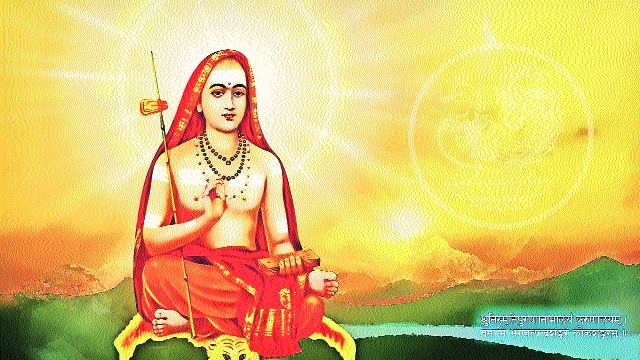Of mortality and immortality
| Date :17-Sep-2024 |
Adi ShankaracharyaBy Vijay Phanshikar :Amrutam chaiva mrutyuscha dwayamdehe pratishthitam/Mohadyutpatye mrutyuhsatyenotpadyute amrutam//(Immortality and death both reside in the body/Death comes from temptation and immortality from the truth//)- Adi Shankaracharya
TO SOME, this may sound like deep, occult philosophy. In actuality, this is a simple truth that everybody realises --
verbally or non-verbally. Though Adi Shankaracharya is known for his deep, vedantic wisdom, much of his writings or interpretations of ancient
philosophy relate to practical realities of living. The
quotation above is one such.
A quiet pondering over the verse brings to fore a common truth that anybody can understand -- that when a human person falls prey to temptation, he (or she) invites mortality. In worldly terms, the person dies a little ‘death’ when he (or she) indulges in cheapness of temptation or desire. In contrast, when the person
understands the truth -- in any of its forms -- he (or she) rises to immortality.
Yes, very deep philosophical
explanation of this is, of course,
available -- in different texts and also in the mind of a serious pursuer.
For, Adi Shankaracharya was the believer of Adwait Vedanta (non-dichotomous
philosophy) and insisted that the Eternal Truth was (is) far beyond the visible
universe, and that whatever is visible is destructible:
Yad drushtam tannashtam !
Thus, falling prey to temptation or
proving weaker before desire means sort of dying, so to say. Rising above pettiness of temptation and desire and addressing oneself to truth means elevating or
sublimating oneself to the Eternal. In
other words, it means realising that I am the Brahman -- Aham Brahmasmi !
The beauty of spiritual literature of ancient India is in the ability of its
promoters to explain deep and even
complex truths in simple terms. So, for them, falling prey to temptation (of
thinking that one’s body or worldly possession as the
ultimate of existence) meant death; and realising or sensing within that the eternal truth -- Brahma -- lay cloaked in invisibility, meant touching immortality.
This wisdom -- coming down through generations of sages and thinkers and philosophers -- forms the core of
spirituality that acts as a ladder to the
sublimation of the soul -- enshrined in the concept of Nirvana, the salvation !
This is actually not too complex to
comprehend -- if approached with a calm and settled mind and uncluttered head (which happens when the individual inner being travels beyond the realm of
temptation or an overbearing sense of physicality of existence).

